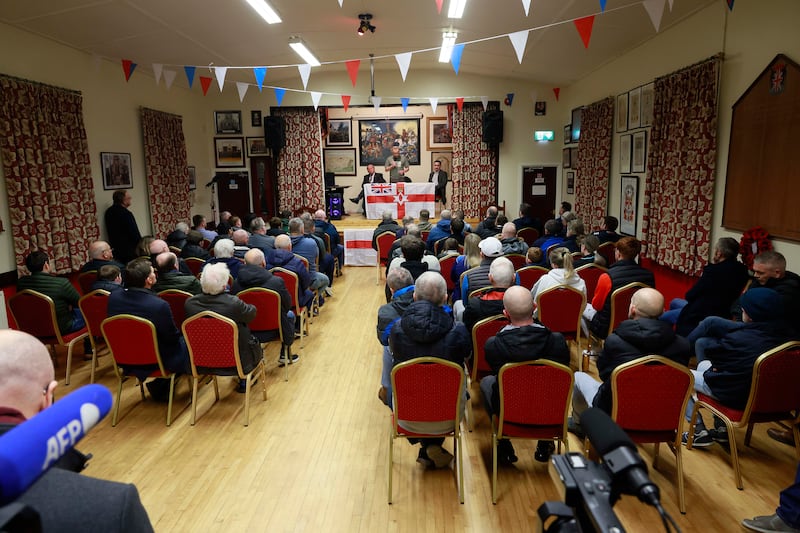The way has now been paved for a historic first. On Saturday, Sinn Féin’s Michelle O’Neill will become the first republican or nationalist to serve as First Minister of the Northern Ireland Executive.
Of course, as Sinn Féin itself has frequently pointed out in the past, the structures at Stormont mean that the First Minister and Deputy First Minister exercise joint and equal power. The symbolism, however, is unavoidable.
Despite Sinn Féin’s strong performance in the May 2022 Assembly election, where it topped the poll with 27 seats and a 29% vote share, Ms O’Neill has been unable to take up the role because of the wretched self-serving DUP boycott.
- The Irish News view: Why did Donaldson have to give the LCC a special briefing on his deal?Opens in new window
- The Irish News view: As Donaldson’s DUP goes from dither to decision, unionism’s self-indulgent disputes about the Irish Sea border need to be put firmly in the pastOpens in new window
- The Irish News view: It was inevitable that Sir Jeffrey Donaldson would have to face down his unionist critics. But why has it taken him so long?Opens in new window
Its end is within touching distance. On Thursday, MPs backed the legislation linked to the Safeguarding the Union deal between the British government and the DUP.
Unsurprisingly, it encountered little challenge. Parliament has previously voted overwhelmingly in favour of the Windsor Framework, of which the Donaldson deal is essentially a refreshed version, with added red, white and blue.
Afterwards Sir Jeffrey Donaldson wrote to Assembly Speaker Alex Maskey – who must surely be looking forward to retiring properly – to tell him that there was now the basis for MLAs to vote for a new Speaker, the essential first step to establishing a new Executive.
Parliament has previously voted overwhelmingly in favour of the Windsor Framework, of which the Donaldson deal is essentially a refreshed version, with added red, white and blue
Party leaders are due to meet on Friday to discuss the key issues awaiting ministers – the outline of a programme for government, essentially – although the challenges are well known.
Crashing power-sharing for two years has damaged our public services, accelerating the drift caused by earlier political dysfunction, including Sinn Féin’s three-year collapse of the institutions.
Will this be the Executive which finally takes health and social care reform seriously? How will it approach the hikes to our rates bills, and the other so-called revenue raising measures the British government wants to see in exchange for its £3.3 billion funding package?

It should be noted that Sir Jeffrey still faces dissent from within DUP ranks. Whether it is committed enough to make the move from the comfort of the benches in the House of Commons and the House of Lords to the draughty platform of an Orange Hall alongside Jim Allister and his fellow travellers remains to be seen.
Though they fizz with rage against progress, the doom-mongers and naysayers must know they have lost the argument; as an insult, ‘protocol implementer’ lacks the potency of ‘Lundy’.









